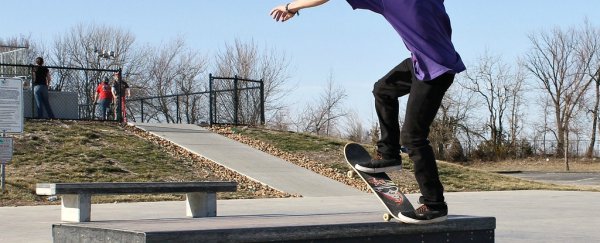A new study suggests that, when it comes to sport, practice doesn't necessarily make perfect. In fact, for us ordinary wannabe athletes, practice only accounts for 18 percent of our abilities - a figure that drops to a mere 1 percent when applied to elite athletes.
The findings suggest that other factors are largely at work inside the minds and bodies of top athletes, such as genetics, psychology, and intelligence- things that practice alone cannot change, no matter how hard you try. In other words, you might want to reconsider what you spend your precious 10,000 hours on.
The study – conducted by a team of researchers from the US and New Zealand – set out to see how much practice actually impacted athletes' performance, by studying 52 data sets, encompassing a total of 2,765 participants who play a variety of sports at different skill levels.
When they were done crunching the numbers, the team found that while practice is vitally important to early-skill development, it isn't nearly as important as we all make it out to be - especially when you already understand the basics.
"While practice is necessary for elite athletes to reach a high level of competition, after a certain point, the amount of practice essentially stops differentiating who makes it far and who makes it to the very top," lead author Brooke Macnamara, from Case Western Reserve University in the US, told Talal Al-Khatib from Discovery News.
Instead, athletic prowess seems to stem from other areas, such as genetic factors that determine muscle mass, psychological factors like confidence and performance anxiety, and intellectual factors such as memory capacity.
These factors account for a whopping 82 percent of how well athletes do during game time, say the researchers, with practice simply making up the remaining 18 percent.
Once a person achieves elite status, practice only accounts for 1 percent of total athletic performance, though the team is aware that it will take more time to fully understand the break down completely.
"As we look at multiple factors, I don't think we'll even be able to - with 100 percent certainty - predict someone's performance in any activity, not just sports," Macnamara told James McIntosh from Medical News Today. "But we can do better than we're doing now."
This isn't the first time that researchers have taken on the notion of 'practice makes perfect'. Back in 2015, an international team of psychologists found that deliberate practice only accounts for about one-third a difference in skill level.
As Fiona MacDonald reported for us:
"The researchers came to this conclusion after analysing data taken across six previous studies of chess competitions (1,082 subjects in total) and eight studies of musicians (628 subjects), and looking for any kind of correlation between practice and success. What they found was that, well, there kinda wasn't one, and there were huge variations in how much of a role practice seemed to have played in success."
All of these findings strike away at the common notion that it takes 10,000 hours of practice to master a skill, a figure that was popularised by Malcolm Gladwell in 2008 with his book Outliers.
While it will definitely take more research to fully understand what truly does determine our skill levels in certain areas of life, it's becoming rather safe to say that practice is valuable, but it only takes us so far.
The team's findings were published in Psychological Science.
